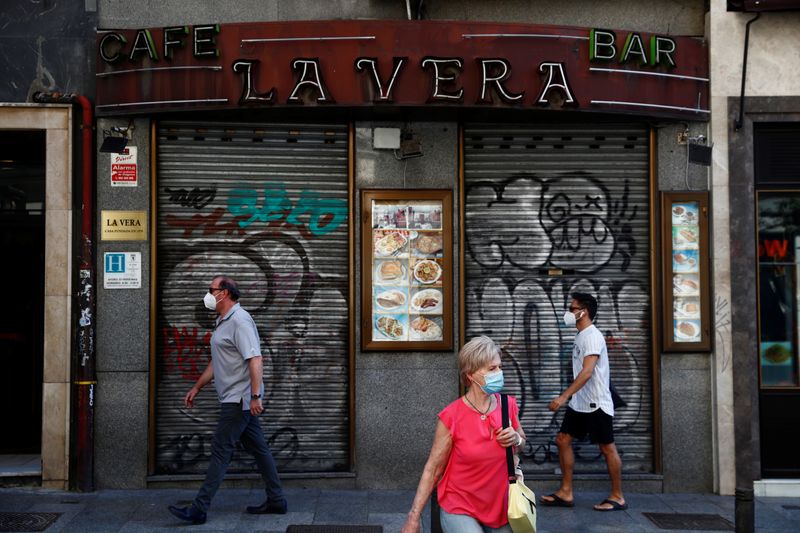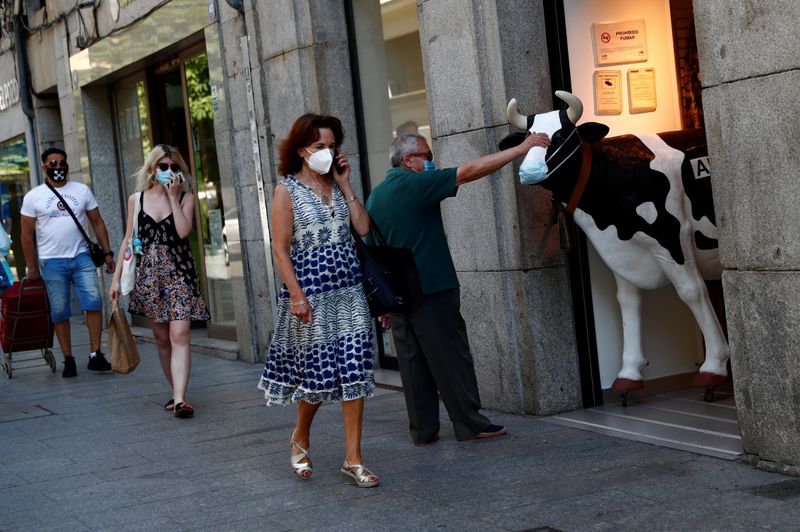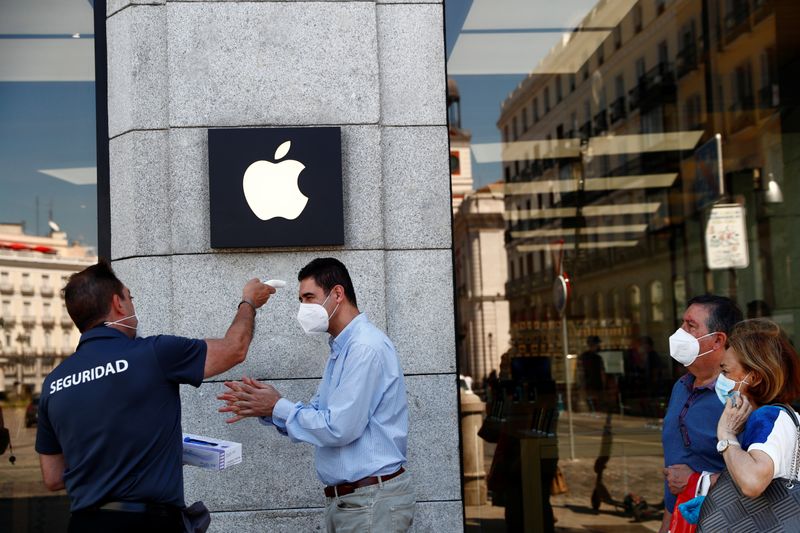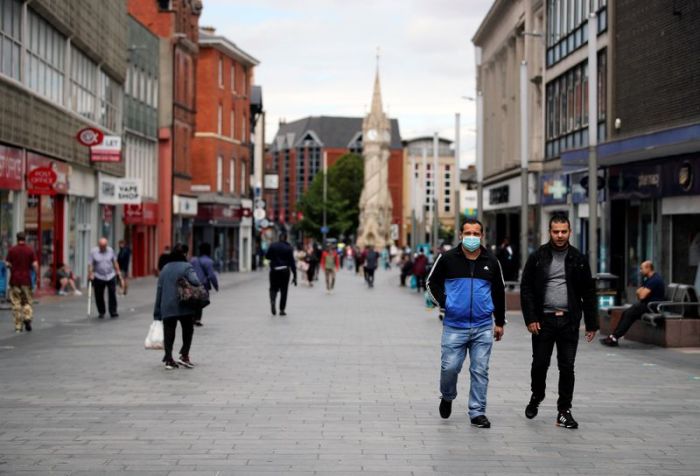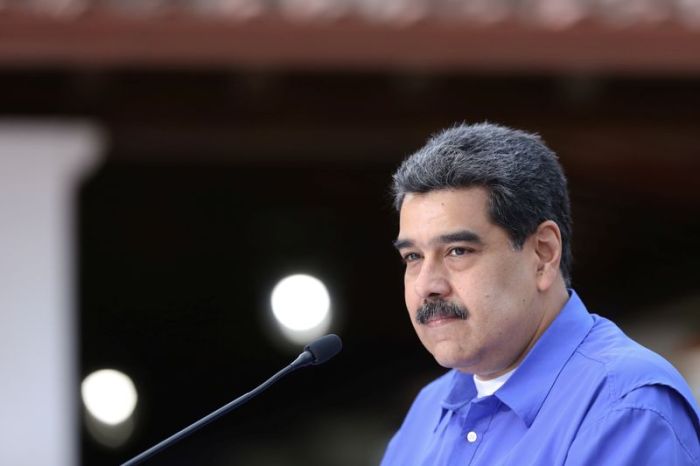MADRID (Reuters) – Spain’s tourism-dependent economy needs profound structural reforms to avoid “chronic” levels of public debt that could hinder long-term growth, the Bank of Spain said on Tuesday.
One of the nations most affected by the coronavirus, Spain is heading for its worst economic performance on record in 2020, with a contraction of 9%-11.6%, as forecast by the central bank.
“In a hypothetical scenario where no structural fiscal effort is made by the authorities in the next ten years, the ratio of public debt to GDP would remain well above 100% at the end of 2030,” the central bank said in its 2019 annual report.
The report echoed last week’s comments by bank Governor Pablo Hernandez de Cos stressing the importance of reforms while also predicting some recovery later this year.
However, his institution is also warning of a potentially even sharper contraction this year of 15.1% in a worst-case scenario with a new wave of coronavirus infections.
In those circumstances, the Bank of Spain said on Tuesday the debt-to-GDP ratio could rise up to 126.7% in 2020 and hover around 130% in 2021 and 2022, while the deficit would go up to 14% this year from 2.8% in 2019.
De Cos said in Tuesday’s report that it was important for the European Recovery Fund to have the potential to expand.
EU leaders agreed earlier in June that urgent action was needed to help their coronavirus-hit economies, but remain divided over the Franco-German proposal for grants to be made available to severely-affected states like Spain and Italy.
Oscar Arce, the Bank of Spain’s director general for economics, told a news briefing that the recovery fund should be approved soon “with an agile design so that the money reaches the countries in greatest need as quickly as possible.”
He also advised the Spanish government to tap the European Stability Mechanism (ESM) if conditions were more favourable than those of the market.
“It is time to do the math and if it adds up and it is better to tap the ESM, there it is,” Arce said, adding that it was a mistake to stigmatise access to European resources.
(Reporting by Jesús Aguado and Emma Pinedo; Editing by Andrew Cawthorne)

